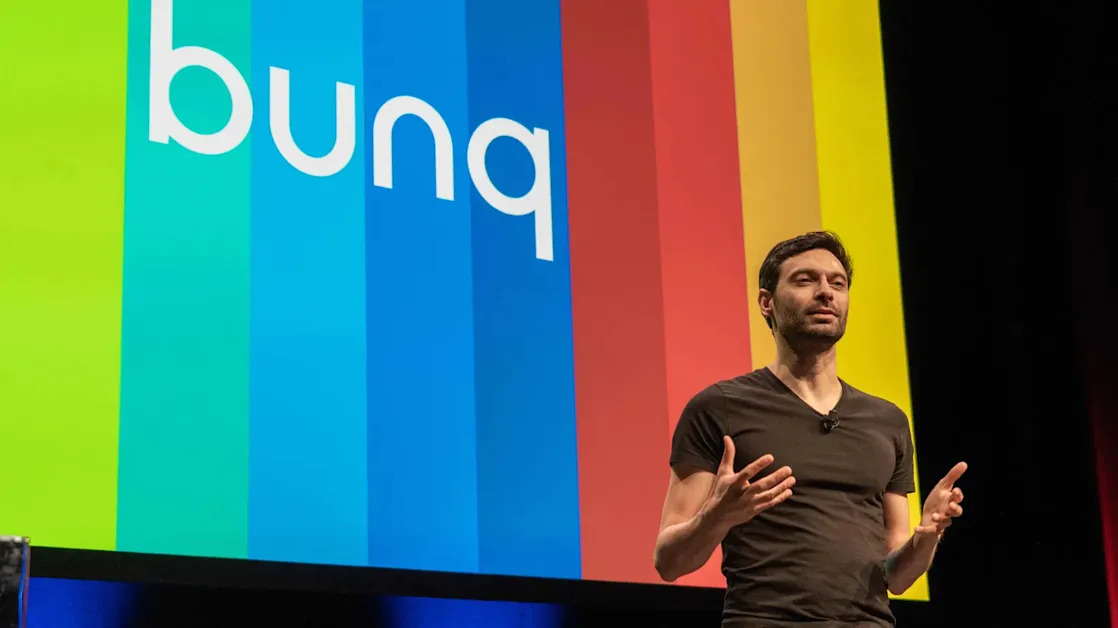This story was originally published on Banking Dive . To receive daily news and insights, subscribe to our free daily Banking Dive newsletter .
European neobank Bunq has expanded into cryptocurrency, partnering with U.S.-based crypto exchange firm Kraken, the company announced on Tuesday .
Bunq’s latest venture, driven by customer demand to invest in crypto, will help users open an account “in seconds” and trade over 300 cryptocurrencies, including bitcoin, Ethereum and Solana, the company said.
Bunq Crypto was launched in the Netherlands, France, Spain, Ireland, Italy, and Belgium, with plans to gradually roll out the product to the remaining countries in the European Economic Area, the U.K., and the U.S., where it has already applied for banking licenses.
“Our users across the world have long waited for a simple, safe and straightforward way to invest in digital assets,” Ali Niknam, founder and CEO of Bunq, said in a statement. “Now, everything they will ever need to save, spend and invest — including crypto — is on one platform.”
Bunq will provide an easy-to-understand guide detailing how crypto works, the risks involved, and how to get started for new users, a spokesperson told Banking Dive via email.
Following Bunq’s announcement, Kraken on Wednesday unveiled its tool for neobanks, fintechs and financial institutions to provide clients with direct access to crypto in just a few weeks, citing growing demand for digital assets.
Kraken Embed, a crypto-as-a-service solution, will help partners integrate crypto trading on their own platforms. Kraken said Embed has already demonstrated its real-world impact with its first public integration with Bunq.
“Our Crypto-as-a-Service solution enables a wide range of financial institutions to efficiently meet growing client demand without the complexity and overhead of running their own marketplace,” Brett McLain, head of payments and blockchain at Kraken, said in the press release.
Last month, Kraken inked a deal to acquire futures trading platform NinjaTrader for $1.5 billion , aiming to narrow the gap between traditional finance and crypto and marking the largest deal to date between the two sectors.
The deal came close on the heels of the Securities and Exchange Commission dropping a November 2023 case against Kraken , which alleged that it commingled billions of dollars in customer and corporate funds and allegedly operated an unregistered exchange, broker, dealer and clearing agency.
With the U.S. crypto market expecting an easing of regulations and scrutiny, neobanks are targeting the U.S. market. Bunq is targeting the millions of “digital nomads,” expats, international entrepreneurs, and remote professionals from the EU or the U.S. who have deep ties on both sides of the Atlantic, the spokesperson noted.
The second largest neobank in Europe had pulled back its request for a U.S. banking permit in February last year, citing problems between its Dutch regulator, the Office of the Comptroller of the Currency, and the Federal Deposit Insurance Corp.
Earlier this month, CNBC reported that Bunq has filed for broker-dealer registration in the U.S. as an initial step before securing a full banking license.
“In the Netherlands or Germany, people save first, then spend. In the US, it’s the other way around: spend on credit, then pay it off. So we’re tailoring our approach in order to fit how Americans live and manage money,” the spokesperson added.
Though Bunq’s U.S. launch is not directly connected to its crypto endeavor, both reveal its growth, according to the spokesperson.
Instead of customer acquisition, Bunq is looking to track its Net Promoter Score in the first few months — how people use the neobank, what they like, and what they want more of.
“If [NPS is] high, we’ll know we’re on the right path and can start being more ambitious with future releases,” the spokesperson said.


